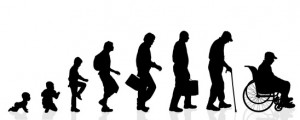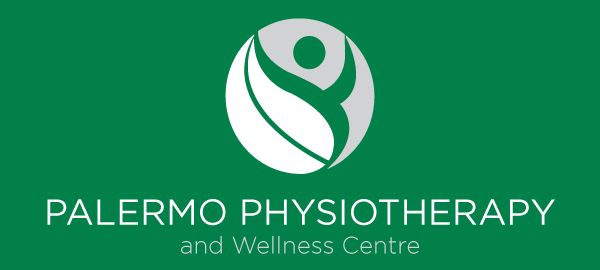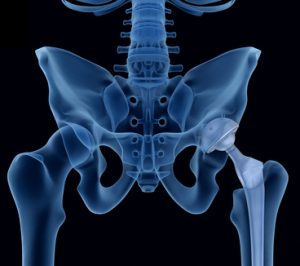May was National Physiotherapy month here in Canada. The perception of what Physiotherapy is a what a Physiotherapist does depends based on a persons experience.
Physiotherapy for Sports Injuries / Athletes
One of my initial experiences personally with Physiotherapy was as a rep fastpitch softball player. My shoulder had started bothering me and I went to Physiotherapy. My shoulder was treated with hands on manual therapy (soft tissue work, joint mobilizations and stretching) as well as strengthening exercises. I also went over throwing technique with the Physio to work on some mechanics that may have failed me. It was through my experience and through seeing athletes on television working with Physiotherapists that initially influenced my thoughts that Physiotherapy is for Athletes only.
This is a common misconception.
Many Physiotherapy clinics market themselves as “sports injuries” or “sports medicine” clinics. While this might be a niche market they enjoy working with, it is certainly not the ONLY population that Physiotherapists work with.
The counter is also true.
Just because a Physiotherapy clinic doesn’t market themselves as a Sports Injuries or Sports Medicine Clinic, does not mean that they don’t treat athletes! At our Oakville Physio and Wellness clinic we treat athletes and non athletes of a range of ages and competitive levels. Physio treatments and treatment plans are based on the person, their injury, other life and health factors and their goals. If your goal is to safely go up and down stairs, our goal is to help facilitate that. If your goal is to return to your rep soccer team after and injury, we help you work for that.
Another experience that influenced my perceptions of Physiotherapy and Physiotherapists was when my great grandmother broke her knee cap after an automatic door closed on her. She had a Physiotherapist visit her home a few times a week. They worked with her on the range of motion of her knee, strength and importantly ambulation. An injury like that for an other person can be dangerous and lead to other complicating health issues. While the Physiotherapy intervention helped prevent this, it was also my great grandmother’s drive to improve and persistence between those Physiotherapy visits that made a difference.
Physiotherapy has developed and changed throughout the world. It is still not fully understood by many what Physiotherapists treat and can treat.
Concussions
Concussions have been all over the media over the past couple of years. Physiotherapists can help treat people with concussions and guide them back to activity and work. Many Physiotherapist take specific continuing education or formulate their own treatment strategies. They will see what your main symptoms are and help direct a home program and in clinic program to help manage and work on those issues.
Vestibular Rehabilitation
Dizziness with position changes, ringing in the ears, spinning of the room with neck movement etc. These can often be assisted through Physiotherapy. The Physiotherapist will work with your Physician to rule out other health issues that may be causing these symptoms. What many people may not realize is that, even it was other health issues that have caused the symptoms, your vestibular system (eyes, ears, neck, brain) may be treated with some simple exercises.
TMJ Physiotherapy
A Physiotherapist can help with Jaw pain and dysfunction (clicking, shifting etc). People may have issues with the TMJ (temperomandibular joint) as a result of injuries (whiplash, falls, fights etc), after dental procedures, as a result of habits (gum chewing, grinding, singing) and even as a result of their structure.
Physiotherapy for TMJ issues comprises of helping to normalize muscle tension and activity in the neck and around the joint, help normalize joint movement through exercises and hands on joint mobilizations. TMJ Physio often consists of treatment addressing other issues such as posture and relaxation techniques.
Pelvic Floor Physiotherapy
Pelvic fleet and pelvic health Physiotherapy is a growing field in Canada. In France it is common place for women to be followed by a pelvic Physiotherapist post-natally for a certain amount of visits. Pelvic floor physiotherapists don’t only treat pregnant and post-natal women. They treat those with pelvic pain, pelvic organ prolapse (POP), urinary incontinence (UI), fecal incontinence etc. Seeing a pelvic health physiotherapist before considering certain surgical procedures is a vital step to ensure that your issues cannot be assisted with more conservative measures.
Cardiac Physiotherapy
Cardiac rehab is common place after a heart attack or a myocardial infarction. It is usually run as a program that includes education and exercise therapy to help maximize recovery. This also help set people up for a more positive recovery and hopefully better habits moving forward.
Respiratory Physiotherapy
This type of Physiotherapy / rehabilitation is designed more for those with chronic respiratory issues such as COPD and emphysema. It also often takes place in a hospital or community centre setting. Here it is a combination of education and exercise. they teach energy conservation and management techniques for issues that may be progressive or unchanging in nature.
“Chest” Physiotherapy
This type of Physiotherapy is most often practiced in an inpatient hospital setting. However we have treated patients in this way in our clinic. Patients who receive this type of treatment may have pneumonias, or cystic fibrosis with increased secretions and difficulty clearing them. This may lead to shortness of breath and decreased oxygen saturation in the body and just generally be uncomfortable. A Physiotherapist will listen to a patients lungs and try to be as specific as possible when applying treatment. They may use different positions during treatment and hands on techniques to help a person clear mucous. They will also teach different breathing exercises and coughing techniques for a person to continue to help themselves.
In certain situations where a person is more medically compromised, a Physiotherapist may help with suctioning techniques also.
Peadiatric Physiotherapy
At our Oakville Physiotherapy clinic we see people of ALL ages. This includes infants, children and adolescents. This population qualifies for OHIP covered Physiotherapy programs, but many parents wish to supplement this or simply access private clinics on their own. OHIP covered clinic may cover up to a certain amount of visits and many people choose to pay out of pocket or using their private insurance for Physiotherapy for their children.
Physiotherapists work with children and infants for a variety of reasons. This may include to assist range of motion in infants with torticollis, teaching parents play based exercises to help and hands-on techniques to assist. We also see infants with delayed gross motor skill milestones.
Pre-teens and teenagers may have started developing signs of scoliosis (abnormal curvature of the spine). Physiotherapists may provide some manual treatment for symptom management as well as exercises to stretch and strengthen.







